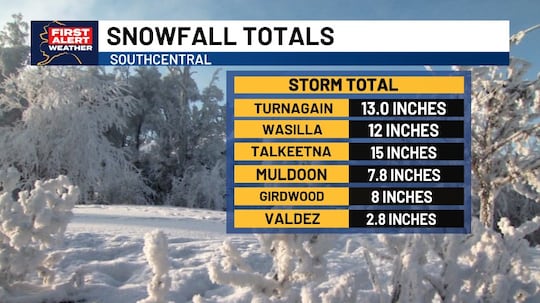State of Alaska Department of Revenue reduced its position in Jacobs Solutions Inc. (NYSE:J – Free Report) by 5.8% during the first quarter, according to the company in its most recent 13F filing with the SEC. The fund owned 16,272 shares of the company’s stock after selling 1,005 shares during the quarter. State of Alaska Department of Revenue’s holdings in Jacobs Solutions were worth $2,500,000 as of its most recent filing with the SEC.
Several other large investors also recently modified their holdings of the company. Boston Partners lifted its stake in Jacobs Solutions by 268.4% in the fourth quarter. Boston Partners now owns 2,891,429 shares of the company’s stock valued at $375,623,000 after buying an additional 2,106,589 shares during the period. Massachusetts Financial Services Co. MA lifted its position in shares of Jacobs Solutions by 134.6% during the 4th quarter. Massachusetts Financial Services Co. MA now owns 1,658,049 shares of the company’s stock valued at $215,215,000 after acquiring an additional 951,369 shares during the period. Ceredex Value Advisors LLC boosted its stake in Jacobs Solutions by 117.2% during the fourth quarter. Ceredex Value Advisors LLC now owns 615,289 shares of the company’s stock worth $79,865,000 after acquiring an additional 332,053 shares in the last quarter. Panagora Asset Management Inc. grew its holdings in Jacobs Solutions by 14,897.6% in the fourth quarter. Panagora Asset Management Inc. now owns 321,548 shares of the company’s stock worth $41,737,000 after purchasing an additional 319,404 shares during the period. Finally, Baupost Group LLC MA increased its stake in Jacobs Solutions by 49.2% in the fourth quarter. Baupost Group LLC MA now owns 727,786 shares of the company’s stock valued at $94,467,000 after purchasing an additional 240,000 shares in the last quarter. 85.65% of the stock is currently owned by institutional investors and hedge funds.
Jacobs Solutions Trading Down 1.3 %
NYSE:J opened at $136.74 on Friday. Jacobs Solutions Inc. has a 52 week low of $119.76 and a 52 week high of $154.50. The firm has a 50-day moving average price of $139.74 and a two-hundred day moving average price of $140.87. The firm has a market cap of $17.12 billion, a price-to-earnings ratio of 26.40, a price-to-earnings-growth ratio of 1.60 and a beta of 0.70. The company has a debt-to-equity ratio of 0.32, a quick ratio of 1.17 and a current ratio of 1.17.
Jacobs Solutions (NYSE:J – Get Free Report) last issued its quarterly earnings results on Tuesday, May 7th. The company reported $1.91 EPS for the quarter, topping analysts’ consensus estimates of $1.84 by $0.07. The business had revenue of $4.27 billion for the quarter, compared to analyst estimates of $4.33 billion. Jacobs Solutions had a return on equity of 14.59% and a net margin of 3.83%. Jacobs Solutions’s quarterly revenue was up 4.7% compared to the same quarter last year. During the same period last year, the company posted $1.81 earnings per share. On average, equities analysts expect that Jacobs Solutions Inc. will post 7.98 earnings per share for the current fiscal year.
Jacobs Solutions Dividend Announcement
The business also recently disclosed a quarterly dividend, which was paid on Friday, June 21st. Investors of record on Friday, May 24th were issued a dividend of $0.29 per share. The ex-dividend date of this dividend was Thursday, May 23rd. This represents a $1.16 dividend on an annualized basis and a yield of 0.85%. Jacobs Solutions’s dividend payout ratio (DPR) is presently 22.39%.
Wall Street Analysts Forecast Growth
Several analysts have recently commented on the company. Robert W. Baird reduced their target price on Jacobs Solutions from $168.00 to $163.00 and set an “outperform” rating for the company in a research note on Wednesday, May 8th. William Blair downgraded Jacobs Solutions from an “outperform” rating to a “market perform” rating in a report on Wednesday, May 8th. Bank of America increased their target price on Jacobs Solutions from $145.00 to $152.00 and gave the stock a “neutral” rating in a report on Tuesday, April 2nd. Citigroup boosted their price target on shares of Jacobs Solutions from $161.00 to $169.00 and gave the company a “buy” rating in a research note on Monday, April 22nd. Finally, Argus raised their price objective on shares of Jacobs Solutions from $161.00 to $174.00 and gave the company a “buy” rating in a research note on Thursday, March 14th. Six research analysts have rated the stock with a hold rating and nine have issued a buy rating to the company. According to data from MarketBeat.com, the stock has an average rating of “Moderate Buy” and an average target price of $156.82.
View Our Latest Report on Jacobs Solutions
Insiders Place Their Bets
In related news, CFO Kevin C. Berryman sold 1,500 shares of the company’s stock in a transaction that occurred on Tuesday, April 30th. The stock was sold at an average price of $145.31, for a total value of $217,965.00. Following the transaction, the chief financial officer now owns 231,604 shares in the company, valued at $33,654,377.24. The transaction was disclosed in a document filed with the SEC, which is available through the SEC website. In other news, CFO Kevin C. Berryman sold 1,500 shares of the stock in a transaction on Tuesday, April 30th. The stock was sold at an average price of $145.31, for a total transaction of $217,965.00. Following the completion of the transaction, the chief financial officer now owns 231,604 shares in the company, valued at approximately $33,654,377.24. The transaction was disclosed in a filing with the Securities & Exchange Commission, which can be accessed through this hyperlink. Also, insider Steven J. Demetriou sold 7,000 shares of the stock in a transaction on Monday, June 3rd. The stock was sold at an average price of $139.43, for a total value of $976,010.00. Following the transaction, the insider now owns 541,138 shares of the company’s stock, valued at approximately $75,450,871.34. The disclosure for this sale can be found here. Over the last 90 days, insiders have sold 22,500 shares of company stock valued at $3,180,575. Company insiders own 1.00% of the company’s stock.
Jacobs Solutions Company Profile
(Free Report)
Jacobs Solutions Inc provides consulting, technical, engineering, scientific, and project delivery services for the government and private sectors in the United States, Europe, Canada, India, Asia, Australia, New Zealand, the Middle East, and Africa. It operates through Critical Mission Solutions, People & Places Solutions, Divergent Solutions, and PA Consulting segments.
Further Reading
Receive News & Ratings for Jacobs Solutions Daily – Enter your email address below to receive a concise daily summary of the latest news and analysts’ ratings for Jacobs Solutions and related companies with MarketBeat.com’s FREE daily email newsletter.












































